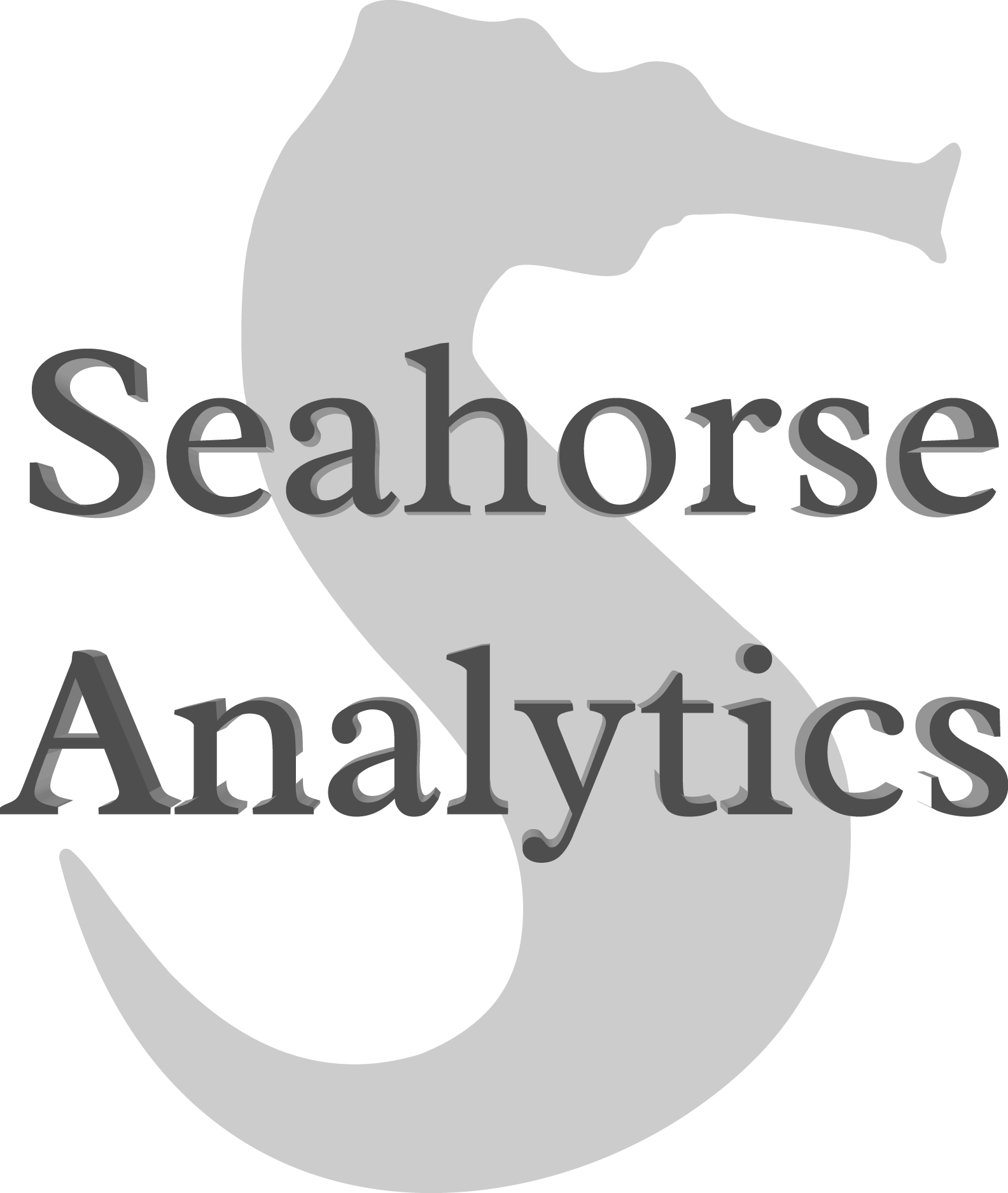Project Management Institute (PMI) Methodology
The core methodology Seahorse Analytics employs for program and project management was defined by the Project Management Institute (PMI), and has been recognized as an standard by the American National Standards Institute (ANSI). This methodology is detailed within the PMI's "Guide to the Project Management Body of Knowledge (PMBok)". An overview of this methodology is provided within the following Wikipedia article: Wikipedia Link. The following sections provide a summary of the "Process Groups" and "Knowledge Areas" as defined in the PMBoK.
The Five Process Management Groups
The five "Project Management Process Groups" identified in the Project Management Institute (PMI) Project Management Book of Knowledge (PMBoK) Guide are:
- Initiating - Processes performed to define a new project or a new phase of an existing project by obtaining authorization to start the project or phase.
- Planning - Processes required to establish the scope of the project, refine the objectives, and define the course of action required to attain the objectives that the project was undertaken to achieve.
- Executing - Processes performed to complete the work defined in the project management plan to satisfy the project specifications.
- Monitoring and Controlling - Processes required to track, review, and regulate the progress and performance of the project; identify any areas in which changes to the plan are required; and initiate the corresponding changes.
- Closing - Processes performed to finalize all activities across all Process Groups to formally close the project or phase.
The Ten Project Management Knowledge Areas
The ten "Project Management Knowledge Areas" identified in the Project Management Institute (PMI) Project Management Book of Knowledge (PMBoK) Guide are:
- Project Integration Management - the processes and activities needed to identify, define, combine, unify, and coordinate the various processes and project management activities within the project management process groups.
- Project Scope management - the processes required to ensure that the project includes all the work required, and only the work required, to complete the project successfully.
- Project Schedule Management - the processes required to manage the timely completion of the project.
- Project Cost Management - the processes involved in planning, estimating, budgeting, financing, funding, managing, and controlling costs so that the project can be completed within the approved budget.
- Project Quality Management - the processes and activities of the performing organization that determine quality policies, objectives, and responsibilities so that the project will satisfy the needs for which it was undertaken.
- Project Resource Management - the processes that organize, manage, and lead the project team.
- Project Communications Management - the processes that are required to ensure timely and appropriate planning, collection, creation, distribution, storage, retrieval, management, control, monitoring, and the ultimate disposition of project information.
- Project Risk Management - the processes of conducting risk management planning, identification, analysis, response planning, and controlling risk on a project.
- Project Procurement Management - the processes necessary to purchase or acquire products, services, or results needed from outside the project team. Processes in this area include Procurement Planning, Solicitation Planning, Solicitation, Source Selection, Contract Administration, and Contract Closeout.
- Project Stakeholder Management - the processes required to identify all people or organizations impacted by the project, analyzing stakeholder expectations and impact on the project, and developing appropriate management strategies for effectively engaging stakeholders in project decisions and execution.
